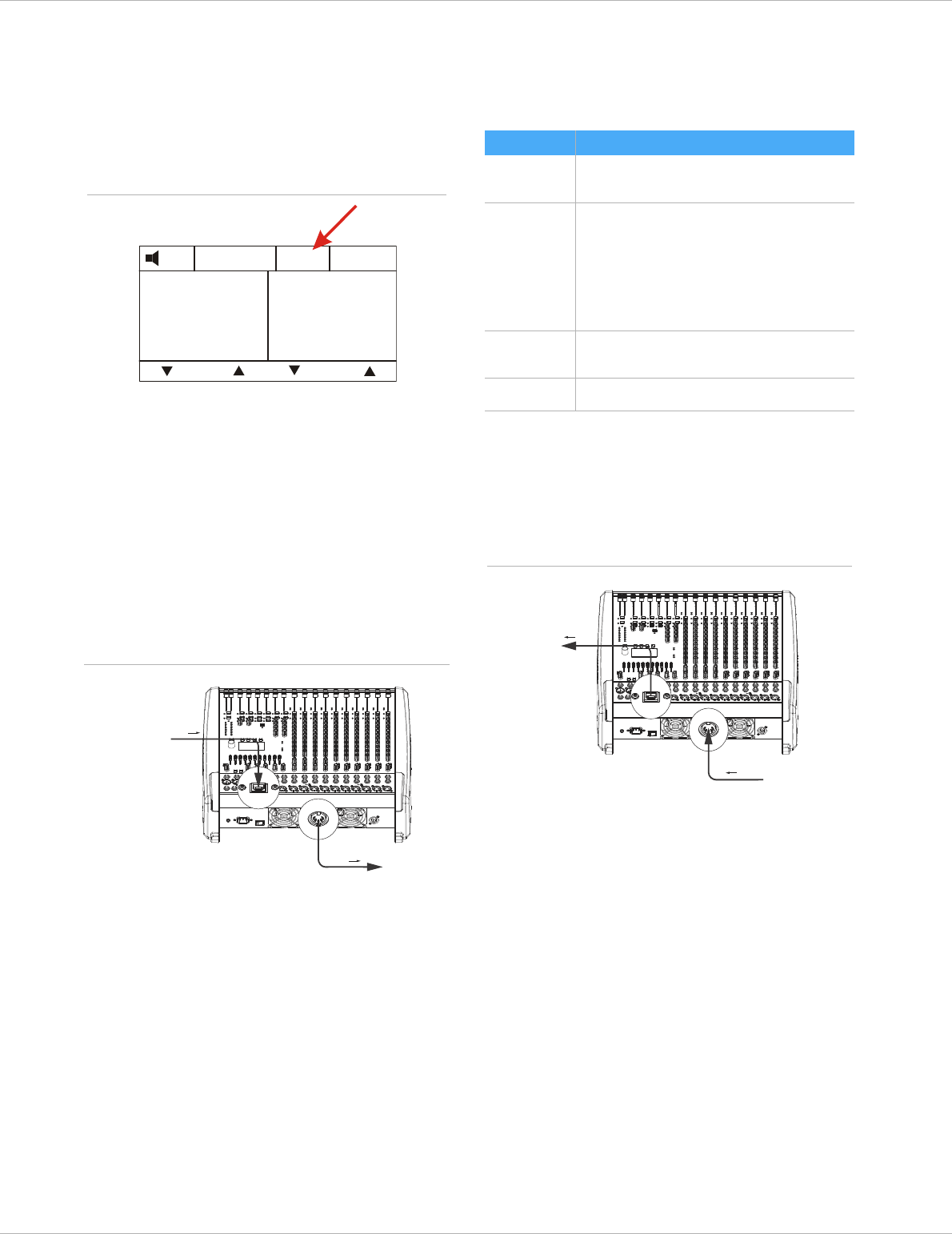
POWERMATE
3
36
4.3 Status display
In effect mode, the display of the PowerMate shows the
status information of the DIGITAL AUDIO INTERFACE.
4.4 PC-MIDI-Interface
The PowerMate provides a full-featured PC-MIDI inter-
face. So, when you use an appropriate software applica-
tion to send MIDI data from the PC/Mac to the DIGITAL
AUDIO INTERFACE, the MIDI data is present at the MIDI
OUT jack on the rear of the PowerMate.
Vice versa, all MIDI data input via the MIDI IN jack are
passed through to the PC, for instance to be recorded
using a sequencer software application.
Keep in mind that the control data for the integrated
effects units, that for example can be remotely controlled
via MIDI footswitch, are transmitted to the PC as well.
Data error interpretation can be avoided through careful
selection of suitable MIDI channels, see also “FX Control
Setup” on page 32 and the documentation of your soft-
ware application.
HINT: For sending MIDI data from your PC to the Pow-
erMate, open the Sounds and Audio Devices
Properties in the Windows Control Panel.
Select DYNACORD USB-MIDI as Default Device
for MIDI music playback.
Illustration 4-2: DIGITAL AUDIO INTERFACE display
BRIGHT HALL MONO DELAY
MAX LPN HIGH USB MIDI
L
5 55
Large Hall 3 230 ms 40%
FX1 FX2
Display Description
USB
L
or USB
S
The USB connection between PowerMate and PC/Mac is
active (Live or Studio routing). The DIGITAL AUDIO INTER-
FACE is ready for operation.
PEAK For at least one of the four recording channels exists the
risk of clipping. Reduce the output level of the affected
channel by lowering the setting of the AUX 1, AUX 2, MON
1 or MON 2 fader or the REC SEND & USB OUT control
(Master).
HINT: The PEAK warning appears also when the
DIGITAL AUDIO INTERFACE connected to a
PC/Mac is used for playback purposes only.
In this case the warning can be ignored.
AUX 1, AUX 2,
MON 1, MON2,
MAS
PEAK and the name of the channel on which clipping
occurred are shown in turns for a few seconds.
PLAY The Play USB to 2TRACK function is active, refer also to
page 33.
Table 4-3: USB status display
Illustration 4-4: Sending MIDI data from a PC/Mac to a
Synthesizer
to Synthesizer
USB from PC/Mac
MIDI
MIDI
MIDI OUT
Illustration 4-5: Sending MIDI data from a Master Keyboard to a
PC/Mac
Master Keyboard
USB to PC/Mac
MIDI
MIDI
MIDI IN


















